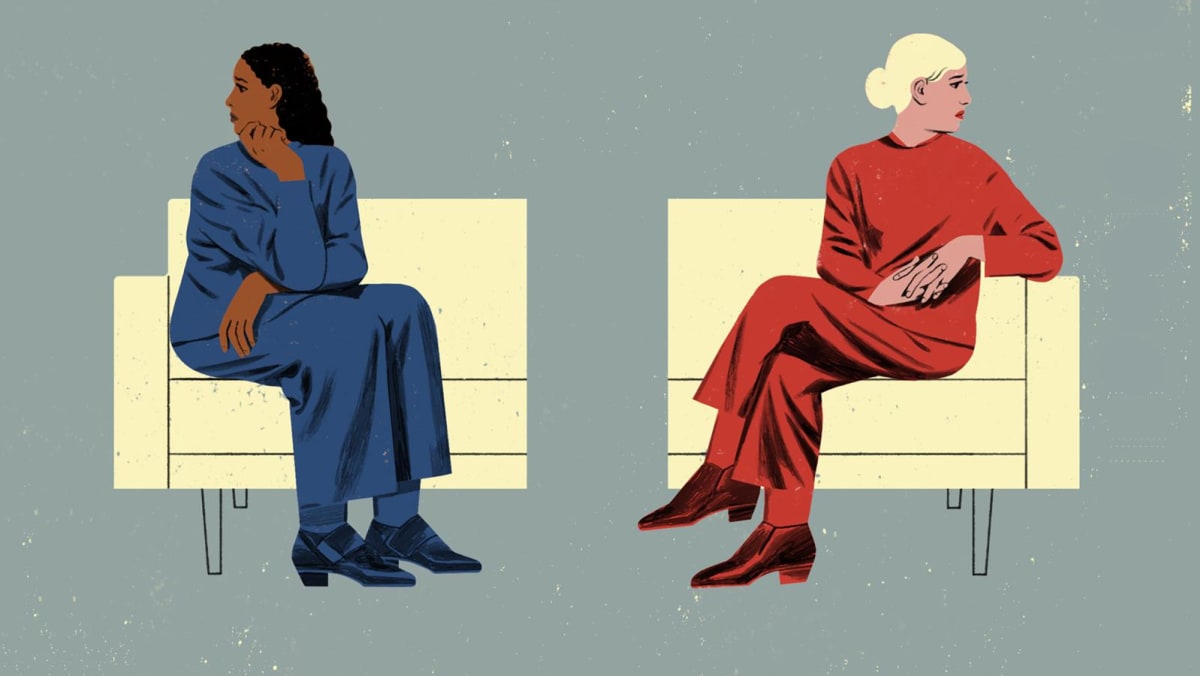When Krystle Dullas’s close friend left their city for an extended cross-country road trip in 2022, they vowed to stay in touch. But as life got busier, their long telephone conversations and video exchanges slowly dissipated, Dullas said.
In January, when she saw on social media that her friend visited home without seeing her, Dullas felt confused and hurt. And her inquiry about the visit received only a curt response, she said.
The two haven’t spoken since.
Dullas, 37, felt as if she’d been unceremoniously dumped by someone she’d been close to for nearly five years. And while she doesn’t regret losing a friend who was unwilling to make time for her, Dullas was surprised by how much the breakup stung. Indeed, cutting ties with a close friend can be as tough as splitting with a romantic partner, relationship experts said, though there’s no cultural script for processing the end of a friendship.
“It was just really, really sad because you’re mourning a person who’s still alive,” said Dullas, a sales representative at a board game distributor in Richmond, Virginia.
Such breakups represent an “unrecognised kind of grief,” said Dr Beverley Fehr, a social psychologist with the University of Winnipeg who studies close relationships.
“If someone goes through a divorce or is widowed, there’s generally support for the person – or at least an acknowledgment of the pain they are experiencing,” Dr Fehr said. “That tends not to happen so much with friendships.”
Here’s why losing a friend can feel so painful, and some expert tips if you’re considering a breakup.
THE AMBIGUITY OF THE SLOW FADE
While friendships sometimes end because of a “cataclysmic” event – a betrayal, for instance – more often, they tend to simply peter out, Dr Fehr said. Ghosting can happen among friends, too.
A friendship breakup can leave both parties adrift, and the person each of the friends would typically share their deepest feelings with isn’t there to help them process the hurt.
That was the case for Nate Douty, a 23-year-old student at Stephen F Austin State University in Nacogdoches, Texas, who recently lost a treasured friendship. “It did feel like I was alone because no one really understood the type of pain I was going through,” Douty said.
After Douty met his former friend through Instagram last year, they “became brothers almost instantly,” he said. They texted around the clock, discussing everything, especially their shared interest in football.
But after a period of conflict, his friend began to gradually withdraw from the relationship, Douty said. By mid-October, it was clear the friendship was over.
“It hurt as much as any relationship breakup I had ever had, probably even worse,” said Douty, who said he struggled to eat and focus on school in the wake of the breakup. “I cried for days, even weeks,” he added.
HOW TO END THINGS WITH COMPASSION
Friendship breakups are painful on both sides, and may not be as clear-cut or one-sided as they can feel. It is important to be thoughtful about your approach if you are the one calling things off, said Kathleen Smith, a therapist and the author of True To You: A Therapist’s Guide To Stop Pleasing Others And Start Being Yourself. She has counselled clients torn between allowing a friendship to fade away or having a more direct conversation.
“Some people want somebody to say, ‘Hey, we’re just not vibing,’” she said. “Other people say, ‘No! I wouldn’t want somebody to tell me that. I would want to think they were just too busy.’”
Barbie Atkinson, a licensed professional counsellor in Houston who offers friendship counselling in her practice, tends to err on the side of openness, though she acknowledged how uncomfortable that could be for both parties. She generally favours a conversation – either face-to-face or over the phone – but even a thoughtful email can sometimes suffice. “The clearest path is usually straight through,” she said of the direct approach.
If you feel your friend is slipping away and hope to understand why, you might ask something like: “I’ve noticed we’ve been less connected lately, and I’m wondering how you’re doing?” Atkinson suggested. Leading with questions can help make room for open dialogue, rather than trying to force a resolution, she added.
In some cases, ending a friendship can bring peace of mind. Ellina Rabbat, a public servant in Vancouver, broke up with her on-again, off-again friend of more than a decade last year.
Telling her friend outright that she didn’t wish to continue the relationship helped give Rabbat, 30, the opportunity to turn the page on a rocky friendship she has had since high school.
Dr Fehr noted that one downside to being direct in ending a friendship was the potential to erase the chance of rekindling it later, when both parties might have more time or energy to put into the connection.
But however you go about severing ties, remember to treat yourself with kindness. “It’s really important to recognise that this is a legitimate loss,” Dr Fehr said.
By Katie Mogg and Catherine Pearson © The New York Times Company
The article originally appeared in The New York Times.

